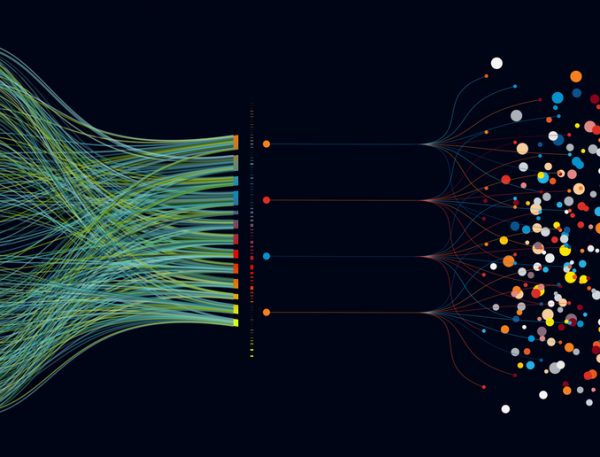
Data has become an increasingly valuable commodity in healthcare as organizations try to meet changing consumer demands and shifting business models and regulations.
One company building their business around this thesis is Philadelphia-based health data management startup HealthVerity, which recently raised a $25 million Series C financing round led by Foresite Capital. The company was initially founded in 2015 and has raised more than $42 million from investors.
HealthVerity COO and co-founder Andrew Goldberg said the new capital will be directed at building out the company’s sales and marketing teams, as well as its engineering staff.
The 50-person company targets large enterprises – mainly payer and pharma companies – and helps enable better internal data management and interoperability, while also allowing organizations to link assets to other outside data sources.
“The widespread digitization of medical records offers one of the best opportunities to transform patient care and improve the lives of millions,” Foresite CEO Jim Tananbaum said in a statement. “By building technologies that solve long standing challenges in the way that data can be organized, linked and licensed, HealthVerity has significantly enhanced the insights available on the patients and members of its valued customers.”
HealthVerity’s flagship cloud-based Marketplace product is a way for healthcare organizations and other companies to license healthcare data like pharmacy data, EMR clinical data, medical claims data and device data for research and business purposes. The company claims to have more than 20 billion medical transactions for 330 million patients on this marketplace.
Vetted users can use filters or key words to check to see if the data is available on the marketplace to answer their research query.
“They can do that in minutes when previous it was a process that took them weeks,” Goldberg said. “HealthVerity doesn’t own the data. What we do is we help bring buyers and suppliers together in a really efficient and cost effective way.”
Data vendors on the company’s marketplace use a product called HealthVerity Census to prepare their data assets for sale. Healthcare organizations can also use Census as a way to “align” disparate data sources to make an entire patient journey visible. Census deidentifies patient data to comply with privacy laws like HIPAA and the California Consumer Privacy Act, which goes into effect next year.
Companies using Census to manage their own internal data sets can then choose to license their data out on the marketplace.
The renewed focus on social determinants as a key part of a person’s holistic health led to the development of the company’s patent pending Cipher product which is able to combine non-HIPAA compliant consumer data like household income, family size, education level and social media usage alongside clinical data.
Goldberg took pains to underscore that organizations can only look at the data from a cohort level and the data can’t be linked to individuals. He added that privacy laws allow for the combination of consumer information with HIPAA-protected medical information if the data can’t be linked back to a specific patient.
Here’s an example of how the product works. A pharma company interested in increasing medication adherence could segment their non-adherent patient population by income, education or other demographic factors to help drive outreach strategy.
“You get more directional analytics way which could then allow you to drive campaigns like the way you can educate doctors if they come in contact with a patient who meets a certain criteria, this is the kind of story that works best,” Goldberg said.
HealthVerity’s latest product is Consent, a blockchain-based solution meant to help companies manage and track data use permissions across different forms ranging from email OKs to consents to access clinical information.
“We serve as a giant consolidation point for every consent that’s being captured so now you have an enterprise-level view on what permissions you do and don’t have,” Goldberg said.
This is becoming increasingly vital with the upcoming implementation of the California Consumer Privacy Act, which goes into effect next year and expands protections for how data is used, as well as disclosures of data usage to consumers.
“We serve as a giant consolidation point for every consent that’s being captured so now you have an enterprise-level view on what permissions you do and don’t have,” Goldberg said.
Picture: shuoshu, Getty Images










